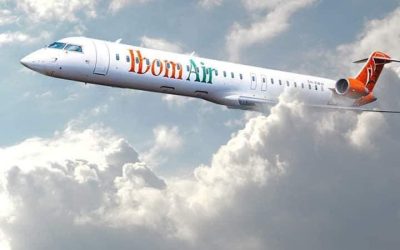
Organizational Behavior and Passenger Crises Management
Organizational behavior plays a pivotal role in airline crisis management, especially during peak seasons like Christmas in Nigeria. The manner in which airlines respond to crises is largely influenced by their corporate mindset. Effective crisis management in flight operations necessitates a structured approach to address passenger-related challenges. This involves formulating clear strategies, delineating roles, and ensuring everyone understands their responsibilities. Gordon (2022) emphasizes that airlines must cultivate organizational practices that prioritize efficient crisis management. Thus, to mitigate crises during peak periods, airlines need to foster a proactive organizational culture geared towards enhancing crisis management capabilities.
Organizational Behavior & Passenger Crisis Management
In the realm of organizational behavior within airlines, individual and collective actions profoundly influence flight dynamics. While crises in flight operations are inevitable, their escalation can be mitigated. By equipping employees with skills in communication, teamwork, and decisive problem-solving, the potential fallout from such situations can be curtailed. Consequently, to navigate and de-escalate these challenges, airline management should foster a culture emphasizing consistent and effective passenger communication throughout all phases of travel.
Recommended:
Latest: Drama at Abuja Airport Nigeria as Passengers and Airlines Disagree Over Delayed Flight New Offer: Gulfstream-400 Private Jet for Sale @1.2Million USD
How Culture and Society Affect Crisis Management in Flight Operations
Passenger Crises Management
During peak periods like Nigeria’s Christmas season, airline passenger crisis management becomes paramount. While crises in airline operations are unavoidable, their effective management is crucial to prevent public embarrassment. Airlines bear the duty to anticipate and strategize for potential crises consistently. Whether facing medical emergencies, disruptive behaviors, or security threats, airline personnel must adhere to established protocols, prioritizing every passenger’s safety and well-being. Crucially, clear and proactive communication between the airline and passengers is pivotal. Rapid decision-making and adaptability to evolving situations are also essential. Thus, for airlines navigating the challenges of peak seasons, robust crisis management ensures passenger trust and safety remain uncompromised
Factors Challenging Effective Airlie Passengers Crisis Management.
- Overcapacity: Airlines often operate at near-full capacity during peak times, leaving little room to accommodate disrupted passengers or implement alternative plans.
- Limited Resources: Peak periods strain ground staff, making it challenging to provide timely assistance, rebooking, or accommodation for affected passengers.
- Communication Challenges: With an influx of passengers and potential disruptions, clear and immediate communication becomes difficult, leading to misinformation or lack of timely updates.
- Operational Complexity: Peak periods increase the complexity of operations, making it harder to swiftly address issues like mechanical failures, crew shortages, or weather-related disruptions.
- Regulatory Constraints: Some crisis solutions might be restricted by regulatory guidelines or international agreements, limiting the airline’s flexibility in managing the situation.
- Passenger Behavior: High passenger volumes can escalate tensions, with frustrated travelers demanding immediate solutions, sometimes hindering organized crisis management efforts.
Recommendations on How to Manage Passenger Crisis During Peak Season:
- Predictive Analysis: Airlines should use historical data and predictive analytics to anticipate peak periods and potential bottlenecks.
- Flexible Scheduling: Adjust flight schedules to spread demand evenly throughout the day, reducing peak-time congestion.
- Clear Communication: Proactively inform passengers about potential delays, alternate routes, or flexible options. Utilize digital platforms, SMS, and airport displays.
- Increase Staffing: Hire temporary staff or employ additional resources to handle increased passenger volumes, ensuring quicker service and reduced wait times.
- Technology Utilization: Implement self-service kiosks, mobile apps, and automated systems to expedite check-ins, baggage handling, and boarding.
- Contingency Plans: Have contingency plans for unexpected events, such as weather disruptions or technical issues, to swiftly manage and communicate changes.
- Feedback Mechanism: Regularly gather feedback from passengers and staff to identify areas of improvement for future peak seasons.
In summary, effective organizational behavior and passenger crisis management are critical in flight operations. If airlines embrace training and preparation, risk assessment, evaluation, and continuous improvement while prioritizing safety, efficiency, profitability, and building the right leadership culture, passenger crises will no longer be allowed to escalate.
References
Gordon, J. (2022, May 8). Crisis Management – Explained. The Business Professor, LLC. https://thebusinessprofessor.com/en_US/management-leadership-organizational-behavior/crisis-management





The ability to manage crisis is the true test of a company’s integrity